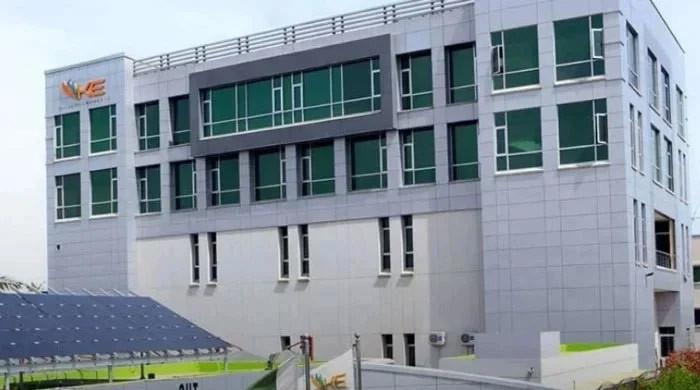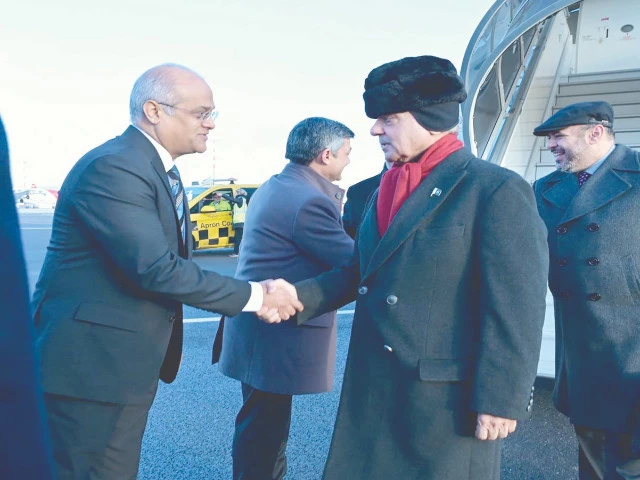- NA passes bill seeking amendments to Elections Act for secrecy of parliamentarians’ assets Dawn
- NA passes The Elections (Amendment) Bill, 2025 Associated Press of Pakistan
- NA passes bill to keep lawmakers’ assets secret for up to a year The…
Category: 1. Pakistan
-
NA passes bill seeking amendments to Elections Act for secrecy of parliamentarians’ assets – Dawn
-

PMD warns of rain, cold spell as westerly wave hits Karachi, Sindh
Karachi’s weather is expected to shift from dry conditions to mostly cloudy skies with rainfall
The Pakistan Meteorological Department (PMD) has issued…
Continue Reading
-

Gulf investors launch $2bn arbitration case against Pakistan over KE dispute
A view of the K-Electric (KE) head office in Karachi. — K-Electric website/File - Saudi, Kuwaiti investors file $2bn arbitration against Pakistan.
- K-Electric investors launch $2bn case under UNCITRAL rules.
- Pakistan…
Continue Reading
-
DAVOS 2026: UK’s Menzies Aviation eyes expansion in Pakistan amid privatisation push – Business Recorder
- DAVOS 2026: UK’s Menzies Aviation eyes expansion in Pakistan amid privatisation push Business Recorder
- Aurangzeb: Economy on road to stability, growth The Express Tribune
- Pakistan ready for business, key investment sectors unveiled Mettis…
Continue Reading
-
Unilateral suspension of IWT threatens regional stability: Pakistan – RADIO PAKISTAN
- Unilateral suspension of IWT threatens regional stability: Pakistan RADIO PAKISTAN
- ‘Weaponisation of water’: Pakistan warns UN India’s move on Indus treaty threatens water security Dawn
- India’s suspension of Indus Waters Treaty,…
Continue Reading
-
Sindh regulator gives Karachi builders three days to fix fire risks after mall inferno – Arab News
- Sindh regulator gives Karachi builders three days to fix fire risks after mall inferno Arab News
- Death toll of fire at Karachi’s Gul Plaza reaches 28 Dawn
- Karachi blaze sparks fiery slugfest in NA The Express Tribune
- NA discusses Gul Plaza…
Continue Reading
-
‘Weaponisation of water’: Pakistan warns UN India’s move on Indus treaty threatens water security – Dawn
- ‘Weaponisation of water’: Pakistan warns UN India’s move on Indus treaty threatens water security Dawn
- India’s suspension of Indus Waters Treaty, International Law, and Pakistan’s right of self-defence The Express Tribune
- Indus Waters…
Continue Reading
-
Saudi, Kuwaiti investors file $2 billion arbitration case against Pakistan over K-Electric dispute – Profit by Pakistan Today
- Saudi, Kuwaiti investors file $2 billion arbitration case against Pakistan over K-Electric dispute Profit by Pakistan Today
- K-Electric not involved in shareholder arbitration Mettis Global
- Gulf investors launch $2bn arbitration case against…
Continue Reading
-

PM seeks to quell talk of Centre-K-P confrontation
Prime Minister Shehbaz Sharif arrives in Davos to attend the 56th annual meeting of the World Economic Forum. Photo: APP
…Continue Reading
-
Balochistan to launch train service between Quetta and Kuchlak – Dawn
- Balochistan to launch train service between Quetta and Kuchlak Dawn
- Balochistan to launch People’s Train Service The Nation (Pakistan )
- Railways minister, CM Bugti agree on people’s train service in Quetta Dunya News
- Jaffar Express upgrades…
Continue Reading